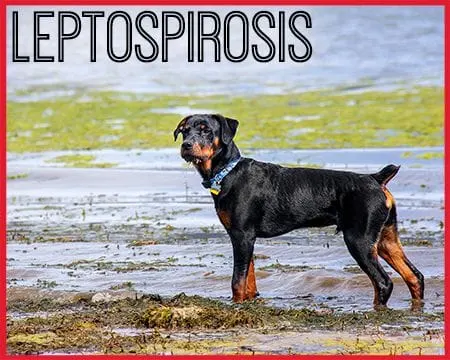In December of 2020 San Diego experienced an outbreak of a disease called Leptospirosis. According to local veterinary sources, several hospitals and at least one boarding facility in downtown San Diego, North Park, and Mission Valley reported cases of Leptospirosis ("Lepto"). This outbreak was unusual because there was a time that Lepto was nearly unheard of in San Diego County. However, we have seen this disease on the rise over the last few years to the point that we now consider it a threat to the pets of San Diego County.
Leptospirosis is a disease caused by the Leptospira bacteria. It can be found worldwide in waterways, bodies of water, and moist soil. Infection occurs when mucus membranes or wounded skin come in contact with infected urine or urine contaminated soil, water, food or bedding. Infection can also occur through the bite of an infected animal. Human disease most often results from recreational activities involving water. Transmission from pets to people is less common, but can happen.
Leptospirosis is considered a public health threat because it is zoonotic, meaning it can be passed on to humans. In both pets and people it can cause serious illness which may ultimately lead to kidney or liver failure if not treated. Dogs with exposure to lakes, rivers, and streams, or who have free roam of large properties are at highest risk. However, any dog who may have exposure to wild or farm animals (even in the backyard) could be at risk. Leptospirosis is rare in cats, and infections tend to be mild.
Signs of Leptospirosis are varied and non-specific. They range from mild, transient illness, to more severe cases of fever, muscle tenderness, lethargy, vomiting, dehydration, diarrhea, loss of appetite, or painful inflammation of the eyes. Very severe cases can result in kidney failure with or without liver failure. Rarely, dogs have developed breathing difficulties or bleeding disorders.
Leptospirosis can be treated if diagnosed early and treated aggressively with antibiotics and supportive care (which can involve hospitalization). Even with treatment, however, leptospirosis can leave the victim with permanent kidney or liver damage.
Luckily, there is an effective vaccine to prevent the four most common variants of Leptospirosis. The current vaccines are highly effective with low risks of side effects (about the same as other common canine vaccines). The vaccine requires an initial series of two injections (given 2-4 weeks apart) and is then boosted annually.
Advanced Veterinary Care has recommended the leptospirosis vaccine as part of our “core” series for several years due to an increase in local cases. We strongly recommend that all pet dogs receive this vaccine to prevent infection, especially given the sudden increase in confirmed cases.
If you are unsure whether or not your dog has been vaccinated against Leptospirosis, or to get more information on this illness, please feel free to call us at (760) 736-3636. You may also download our PetPage App from the Google Play or Apple Apps store, which will give you up to date information on your pets’ vaccine status.

